Webinar: Archaeological and Interpretive Research at St. Clair’s Defeat and the Battle of Fort Recovery
Wednesday, December 13, 1:00 pm
We have a historical archaeology focus for December as we welcome Christine Thompson of Ball State University to discuss frontier Ohio in the 1790s. The Northwest Indian War battles St. Clair’s Defeat (1791) and Battle of Fort Recovery (1794) involved multiple Native Tribes and the U.S. military. Over 12 years of archaeological, preservation, and interpretive research at the battlefield has evolved into updated interpretation co-created with descendent Tribes. Chris will share a summary of this work, the funding awarded for these projects, and focus on two major interpretive products including an online walking tour/wayside exhibits, and a traveling exhibit St. Clair’s Defeat: A New View of the Conflict.
About our presenter:
Bio: Christine Thompson is the Assistant Director and Archaeologist at the Applied Anthropology Laboratories (AAL), Ball State University. Her research interests include the Late Archaic Glacial Kame culture, public archaeology, NAGPRA, and interpretation of historic battlefields. She works to fulfill the AAL mission of inspiring and preparing AAL student employees for the workforce by providing students hands-on learning opportunities through the fulfillment of grant awards and cultural resource management contracts. Thompson strives to build lasting partnerships with Federally Recognized Tribes, communities, museums, historical societies, and other groups while collaborating on funded research projects.

Webinar: Maybe Your Downtown Could Use a Heart Transplant?
Wednesday, November 29th – 1:00 pm – 2:00 pm
Join us as we welcome back former Heritage Ohio director of revitalization, Jeff Siegler, to celebrate the release of his first book, Your City is Sick. Jeff will share what he’s been up to since his days at Heritage Ohio, and delve into the details of the book, including why everyone should purchase multiple copies, and what else he is working on.
About our presenter:
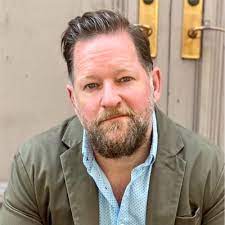 Jeff Siegler is a writer, speaker, and consultant concerned with the powerful role place plays in our lives. He is the founder of the civic pride consulting firm, Revitalize, or Die. After obtaining his master’s degree in Urban Planning from Virginia Commonwealth University, Jeff went to work on Main Street, first as a downtown manager, and later as the Ohio Main Street State Coordinator. His first book, Your City is Sick, was released this past September. Jeff and his wife Amber and their four kids call Pittsburgh home.
Jeff Siegler is a writer, speaker, and consultant concerned with the powerful role place plays in our lives. He is the founder of the civic pride consulting firm, Revitalize, or Die. After obtaining his master’s degree in Urban Planning from Virginia Commonwealth University, Jeff went to work on Main Street, first as a downtown manager, and later as the Ohio Main Street State Coordinator. His first book, Your City is Sick, was released this past September. Jeff and his wife Amber and their four kids call Pittsburgh home.

Webinar: Historic Properties and Affordable Housing in Ohio’s Appalachia Region
Wednesday, January 17th – 1:00 pm – 2:00 pm
Most small towns in rural Ohio are blighted by older homes in varying states of dilapidation. Many of these homes are no longer occupied or even occupiable. Often these houses, while perhaps lacking in historical significance, nonetheless are representative of their communities’ cultural heritage. Thus, their loss, in addition to being a significant economic negative and a loss of affordable housing stock, also constitutes an erosion of architectural distinctness and community identify. But unlike historic properties, for which numerous programs exist to encourage and support their preservation, such “heritage housing” has received little comparable attention. This phenomenon presents an opportunity in which the rehabilitation of older housing stock can improve affordable first-time home ownership while generating employment, income, and wealth, and preserving community identity.
Mr. Lane will discuss his research at the Ohio University Voinovich School of leadership and Public Service which examined the opportunity to enhance Athens County’s supply of more affordable housing through the rehabilitation of older single-family houses – “heritage houses” – that have fallen into disrepair and are uninhabited. In this study, the term “attainable heritage housing” was coined to describe existing older home in need of repair, that are priced below conventional definitions of affordability and which – while typically lacking in historical significance, are nonetheless distinctly representative of their communities’ pasts. The study found that a program of targeted older house rehabilitation could produce significant short- and long-term positive economic impacts for current and prospective residents, while enhancing a community’s position to leverage aesthetic heritage distinctiveness to capitalize on emergent economic opportunities.
This webinar has been approved for 1.00 AIA HSW credit.
About our presenter:
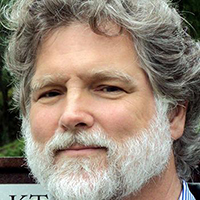
Brent Lane is a Senior Executive in Residence at the Voinovich School of Leadership and Public Service at Ohio University, which he joined in 2020. In his career he has been an early-stage venture capitalist, developed and run business incubators, led state-level economic development programs teams, and directed a university applied economic strategies center. At the Voinovich School he designs and leads in analyses of novel economic and community development opportunities in Appalachian Ohio, especially those capitalizing on the region’s distinctive cultural and natural heritage assets. Brent has earned masters’ degrees in science and technology policy from the George Washington University and in business administration from the University of North Carolina.

Webinar: Historic American Buildings Survey (HABS)
Wednesday, November 15th – 1:00 pm – 2:00 pm
Catherine Lavoie, Chief of the Historic American Buildings Survey (HABS) of the National Park Service (NPS), will talk about the program, how and why it was started, its mission, and its value, with a look at early HABS work in Ohio. HABS was established in 1933 as a unique public-private partnership between NPS, the Library of Congress (LoC), and the American Institute of Architects (AIA) aimed at creating an archive of America’s architectural heritage, then perceived to be rapidly vanishing. Under NPS management, AIA “district officers” in various states across the nation heeded the call to action, selecting and recording sites they deemed worthy of recognition, through measured drawings, historical reports, and photographs. The documentation was housed at the Library of Congress and made available to the general public. While times have changed, HABS still records historic architecture, as well as engineering sites and landscapes, while field testing new technologies to determine best practices and training the next generation of preservationists through its summer student recording program. The collection now spans about 45,000 sites and can be viewed online through the LoC website.
About our presenter:
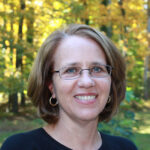
Catherine Lavoie has a master’s degree in American Studies from the University of Maryland with an emphasis in historic preservation and material culture. She worked briefly in state and local preservation before coming to HABS as a historian intern, rising to senior historian, and finally chief in 2008. Catherine is active in the Vernacular Architecture Forum, mostly recently serving as 2nd Vice President and was awarded VAF’s Buchanan Award for excellence in fieldwork and public service (2002) for her HABS study of the Quaker Meeting Houses of the Delaware Valley. Most recently, she co-authored Buildings of Maryland, the latest in the Society of Architectural Historians Buildings of the United States series.

Webinar: Mansions of the Dead
Wednesday, October 18th – 1:00 pm – 2:00 pm
Over 100 early community mausoleums still stand across Ohio. They represent the final resting place of thousands and were viewed with pride and disdain by consumers and community leaders. Ohio was ground zero for the community mausoleums movement that swept across the U.S. in the early decades of the 20th century. The state served as the epicenter for many of the companies, builders and architects who influenced the trend. However, the sustainability of community mausoleums is in peril resulting in their deterioration and destruction.
Inspired by his ancestors who constructed community mausoleums in Indiana, preservationist John Bry has been studying “mansions of the dead” for two decades. He will share the background behind these unique buildings and thoughts on how they can be saved.
About our presenter:
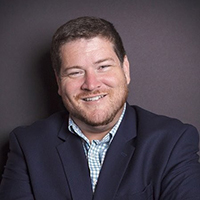
John Bry has 30 years of professional experience in Historic Preservation, community development and Heritage Tourism. He is a native of Auburn, Indiana where he began his interest in Historic Preservation at the age of 13. He holds a bachelor’s and master’s degree in Historic Preservation from Southeast Missouri State University (SEMO) and Ball State University respectively.
He began his Main Street career in 1993 as an intern through the Governor’s Office in his home state being assigned to Indiana Main Street. John went on to serve as the Executive Director for local Main Street communities in Illinois, Indiana, and Ohio for over a decade. He then worked as one of the co state coordinators for Pennsylvania under Bill Fontana for the eastern half of the Commonwealth. He was certified in Main Street in 2002 under the previous program. He diverted his career path for a time with opportunities to work with heritage tourism and community development organizations, but always brought the Main Street Approach to the forefront working with rural and urban communities as part of his role and work.
He has provided technical assistance and training to over 100 community representatives in 15 states in preservation and redevelopment with projects resulting in millions of in investment. He has successfully authored over $6 million dollars in grants for historic preservation, community development and Main Street efforts.
John returned to Main Street fully in 2016 and is now in his 7th year as the Main Street Program Coordinator for Oakland County, Michigan. Oakland County is home to the nation’s only countywide Main Street Program now in its 23rd year. The program serves 28 districts in 27 communities with populations ranging from 600 to 60,000. During John’s tenure, the program has grown to the largest number of participants, has the most private sector partners in its history, created an urban main initiative, and is exploring ways to evolve the Main Street Approach for advanced communities known as “Next Gen”.

Webinar: Tourism in Ohio: What’s Happening and Where are the Opportunities
Wednesday, September 13th – 1:00 pm – 2:00 pm
Get an update on travel trends within the state and among our potential visitors. We’ll spend extra time talking about cultural and heritage tourism, including its importance, what these types of travelers are seeking and how to get their attention. Closing out the webinar, we’ll talk briefly about two opportunities for Ohio communities – America 250 Ohio being celebrated in 2026 and the potential of the Hopewell Ceremonial Earthworks inscription to the World Heritage List in September.
About our presenter:
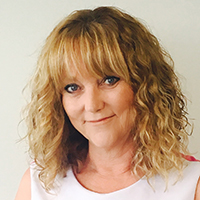 Melinda Huntley is the executive director of the Ohio Travel Association (OTA), a nonprofit organization that provides support for museums, attractions, visitor bureaus, retail shops, hotels, restaurants, and other businesses wanting to attract travelers. OTA advocates for smart policies that increase travel in Ohio, produces the state tourism conference, keeps the industry informed on market trends and news, and provides professional development. It also produces Heartland Travel Showcase, a 14-state regional meeting place for buying and selling group tours. With career experience in public relations at Cedar Point, running a CVB along Lake Erie and helping communities develop heritage and outdoor experiences through OSU’s Ohio Sea Grant College Program, she has a unique understanding of opportunities for businesses and communities of any size. She is a Commissioner for America 250 Ohio which will be celebrated in 2026 and serves on multiple national and statewide task forces and boards, including those focused on World Heritage designation, trail development, and educating our youth.
Melinda Huntley is the executive director of the Ohio Travel Association (OTA), a nonprofit organization that provides support for museums, attractions, visitor bureaus, retail shops, hotels, restaurants, and other businesses wanting to attract travelers. OTA advocates for smart policies that increase travel in Ohio, produces the state tourism conference, keeps the industry informed on market trends and news, and provides professional development. It also produces Heartland Travel Showcase, a 14-state regional meeting place for buying and selling group tours. With career experience in public relations at Cedar Point, running a CVB along Lake Erie and helping communities develop heritage and outdoor experiences through OSU’s Ohio Sea Grant College Program, she has a unique understanding of opportunities for businesses and communities of any size. She is a Commissioner for America 250 Ohio which will be celebrated in 2026 and serves on multiple national and statewide task forces and boards, including those focused on World Heritage designation, trail development, and educating our youth.

Webinar: Crowdfunding Vibrant Communities
Wednesday, September 27th – 1:00 pm – 2:00 pm
Crowdfunding is the process of gathering a community to provide financial support for a project within a set period of time. Patronicity’s crowdfunding platform specializes in community-based projects that empower communities to transform and invest in themselves. Learn how crowdfunding can help your organization to fundraise, build publicity, and engage your community.
Patronicity will share crowdfunding best practices and some of their favorite community projects to inspire you, your organization, and your community. Attendees will receive access to Patronicity’s Crowdfunding Strategy Guide to help you build a community crowdfunding campaign.
About Patronicity
Patronicity uses crowdfunding as a catalyst for placemaking and community development, connecting granting organizations and patrons with hyper-local changemakers in order to build more vibrant communities. Patronicity’s vision is to empower changemakers to build healthy, sustainable, and equitable communities and revolutionize placemaking by democratizing funding. Learn more at www.Patronicity.com.
About our presenter:
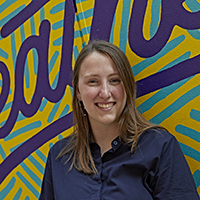 Maddie Miller manages Patronicity’s digital marketing and communications. She is passionate about sharing the company’s purpose-driven mission to build vibrant communities. She has over five years’ experience leading digital marketing strategy for nonprofit arts organizations and design firms. Outside of her work at Patronicity, she is a visual artist, competitive disc golfer, and arts and active transportation advocate.
Maddie Miller manages Patronicity’s digital marketing and communications. She is passionate about sharing the company’s purpose-driven mission to build vibrant communities. She has over five years’ experience leading digital marketing strategy for nonprofit arts organizations and design firms. Outside of her work at Patronicity, she is a visual artist, competitive disc golfer, and arts and active transportation advocate.

Webinar: Restoration Housing
Wednesday, July 19th – 1:00 pm – 2:00 pm
Throughout the US, affordable housing is reaching crisis levels for many Americans. Yet vacant homes often sit for years without intervention and many are demolished to be redeveloped without a plan for their immediate redevelopment. What can be done about these issues?
Founded in 2014, Restoration Housing is a community-based, nonprofit developer focusing on the historic preservation of neglected architectural resources for the social benefit of low-income communities. At the core of everything Restoration Housing does is the belief that all people, regardless of circumstance, deserve to live in strong, healthy communities and dignified housing – the catalyst being the reinvestment in our historic built environment.
About our presenter:
Isabel Thornton is the Executive Director of Restoration Housing, which she founded in 2014 out of a passion for historic preservation and affordable housing. She received a BA in Architectural History from the University of Virginia and an MHP and MPL in Historic Preservation and Urban Planning from the University of Southern California.
She serves on the Real Estate Development Committee for Community Housing Partners and the Blue Ridge Interagency Council on Homelessness. She is also a board member for Carilion Medical Center.
Isabel lives on a farm in Botetourt County with her husband and four children.

Webinar: Facade Enhancement Programs
Wednesday, August 2nd – 1:00 pm – 2:00 pm
Join us for a discussion on downtown facade enhancement programs. The Façade Enhancement Program is a City of Tiffin reimbursement grant that was established in 2014 and provides a 50 percent match of funds for eligible exterior improvements on residential and commercial structures within the downtown historic district, up to $10,000.
Presenters
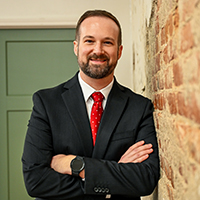 Aaron Montz, President & CEO of the Tiffin Seneca Economic Partnership (TSEP), will speak about the history of the program and how it was started in Downtown Tiffin.
Aaron Montz, President & CEO of the Tiffin Seneca Economic Partnership (TSEP), will speak about the history of the program and how it was started in Downtown Tiffin.
 Donna Gross, Downtown Tiffin Main Street Manager, will discuss her involvement with assisting building owners in the application process. She will share “before and after” photos of completed façades in the historic district.
Donna Gross, Downtown Tiffin Main Street Manager, will discuss her involvement with assisting building owners in the application process. She will share “before and after” photos of completed façades in the historic district.
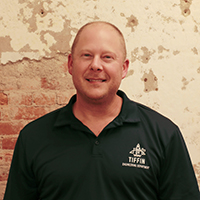 Dan Brickner, City of Tiffin Zoning Inspector, will describe the Architectural Board of Review (ABR) approval and reimbursement process for the grant.
Dan Brickner, City of Tiffin Zoning Inspector, will describe the Architectural Board of Review (ABR) approval and reimbursement process for the grant.

Webinar: Preparing a Successful Bid for State Capital Budget Dollars
Wednesday, August 23th – 1:00 pm – 2:00 pm
Greater Ohio Policy Center (GOPC), the Ohio Facilities Construction Commission (OFCC), and Heritage Ohio will host a webinar, “Preparing a Successful Bid for State Capital Budget Dollars” to assist local changemakers in understanding the capital budget process. GOPC’s Director of Strategic Engagement, Jason Warner, OFCC’s Grants Administrator, Jessica DeLong, and Heritage Ohio’s Executive Director Matt Wiederhold will provide communities with a “101 on the Capital Budget,” as well as case study examples of small communities utilizing capital budget dollars for thoughtfully-planned projects, including their planning steps and process to secure funds.
About Jason & Jessica:
Jason Warner
As the Director of Strategic Engagement for the Greater Ohio Policy Center, Jason brings over 20 years of experience working in and around Ohio state government to representing GOPC at the Ohio Statehouse, advocating for the issues and policy positions central to the organization’s mission, as well as overseeing the organization’s strategic communications operation.
Jason is a 2001 graduate of the University of Akron where he received a Bachelor of Arts degree with a concentration in American Political Science. He also holds a certificate in Applied Politics from the Ray C. Bliss Institute of Applied Politics at the University of Akron. A member of the Ohio Lobbying Association since 2016, Jason is a certified lobbyist, possessing in-depth knowledge of legislative, executive and regulatory procedures along with the rules, regulations and ethical standards to which all lobbyists must adhere in Ohio.
Jessica DeLong
Jessica DeLong, Grants Administrator for the Ohio Facilities Construction Commission, has a Bachelor of Arts degree from The Ohio State University and has served the State Ohio for the past 13 years.

Webinar: Strengthening Your Business Community: The Importance of Regular Check-Ins
Wednesday, June 28th – 1:00 pm – 2:00 pm
Join us for an informative webinar on the importance of regular check-ins with your business community to ensure the health of your local economy. As a Main Street director, it is crucial to support and strengthen the businesses in your community by regularly checking in with business owners to understand their challenges, successes, and needs. In this webinar, Justin from Urality will explore why check-ins are important, how check-ins can impact your long-term success as a Main Street, how to conduct effective check-ins, and the tools and processes that will make them an essential tool for your economic development. Don’t miss this opportunity to strengthen your business community and ensure the success of your local economy!
About Justin:
Justin Copenhaver is the CEO and Founder of Urality, a technology company dedicated to improving community and economic development. With a 20-year technology background in enterprise SaaS, GIS, and Augmented Reality, Justin has spent the last five years working closely with main streets and business improvement districts (BIDs) to utilize technology to improve both community based marketing and economic development initiatives.

Webinar: The History of Color
Wednesday, May 17th – 1:00 pm – 2:00 pm
Join Sherwin-Williams as they explore the company’s manufacturing history and the technological developments that have influenced how we use color to brighten the world around us. Our hosts will share what went into the development of color offerings throughout the decades and the major influences for each time period that directed the color trends that defined generations of homes and businesses.


